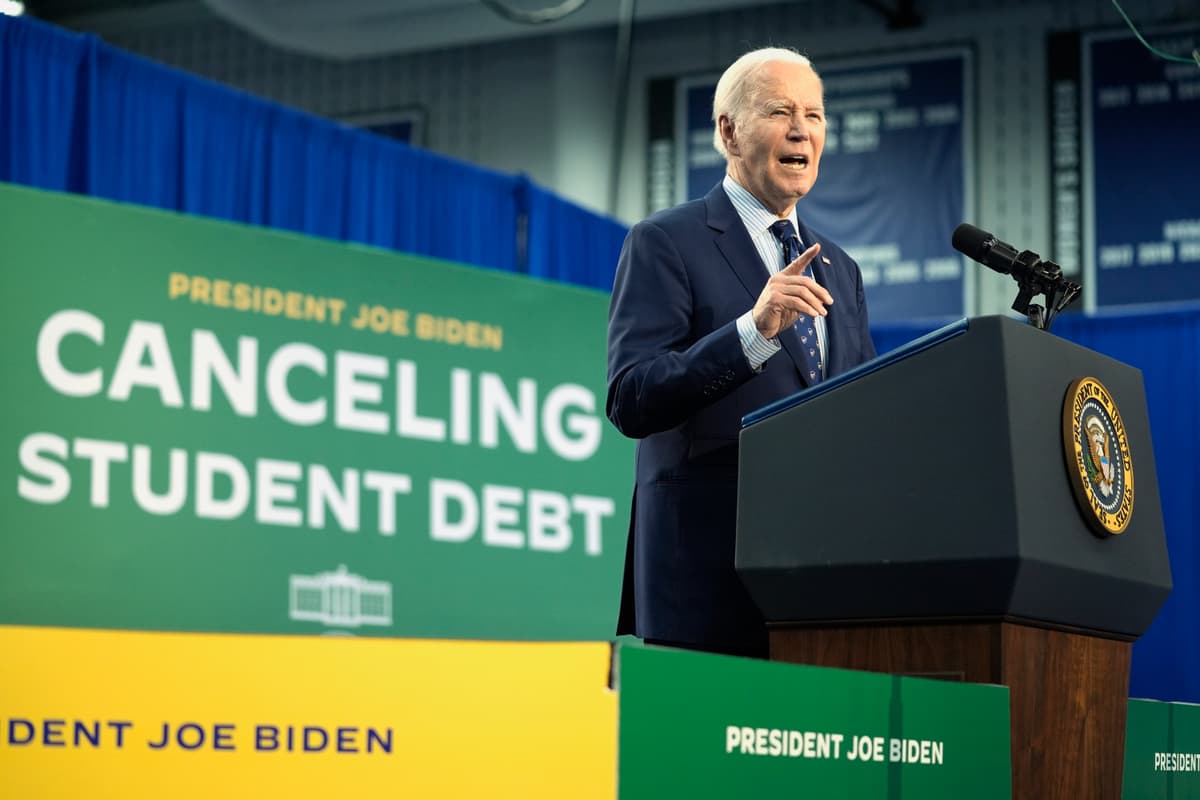Harris Shuns Student Loan Forgiveness Promises as Debt Cancellation Loses its Political Luster
In the span of just a few years, student loan cancellation has gone from a pillar of the Democratic Party to a political liability.

At a campaign rally in April, President Biden told a Wisconsin crowd about his latest “life-changing” plan for student loan cancellation, promising financial relief for more than 30 million Americans.
Please check your email.
A verification code has been sent to
Didn't get a code? Click to resend.
To continue reading, please select:
Enter your email to read for FREE
Get 1 FREE article
Join the Sun for a PENNY A DAY
$0.01/day for 60 days
Cancel anytime
100% ad free experience
Unlimited article and commenting access
Full annual dues ($120) billed after 60 days
